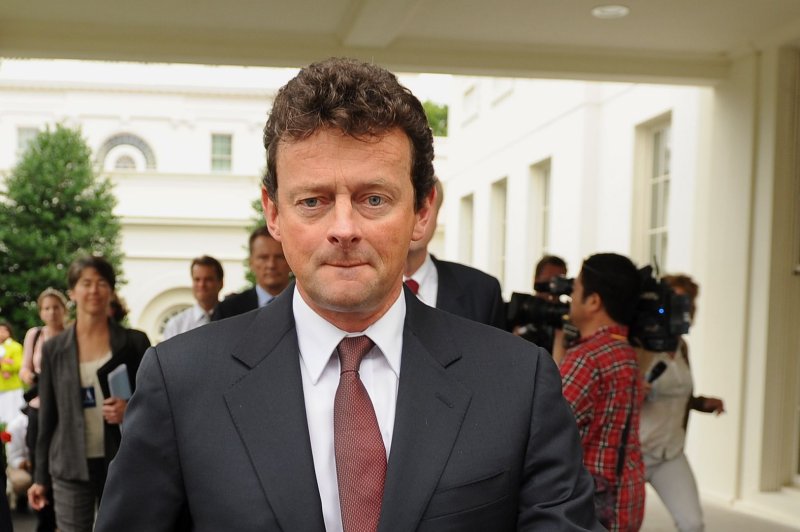Tony Hayward now chairman at Kurdish oil player Genel Energy after management reshuffle. File Photo by UPI/Roger L. Wollenberg |
License Photo
LONDON, July 13 (UPI) -- Former BP boss, Tony Hayward, was appointed Monday as the chairman of Genel Energy, one of the largest oil players in the Kurdish north of Iraq.
Genel, which has headquarters in London, said Hayward, the former chief executive officer, was appointed chairman when Rodney Chase resigned from the position Sunday. Murat Ozgul, chief commercial officer since 2008 and president of Turkey and Kurdish operations, ascends to CEO.
Hayward credited the new CEO with helping Genel boost net Kurdish oil production to more than 100,000 barrels per day, which he said makes it one of the largest independent producers traded on the London Stock Exchange.
Genel in January said it was trimming capital expenditure plans by 30 percent to $200 million and reducing its workforce to compensate for weak market conditions. Headcount reductions and other cut backs should translate to a 40 percent decline in administrative expenses when compared with 2014, based on oil priced at $50 per barrel, about 14 percent less than the current price.
In its update Monday, the company said its strategy was paying off. Net production for the first half of 2015 was an average 88,800 bpd, a 41 percent increase year-on-year. Full-year production guidance for 2015 is between 90,000 and 100,000 bpd.
Full-year revenue guidance for the year is unchanged at between $350 million and $400 million, based on oil priced at $50 per barrel.
The departure of Chase comes as the Kurdish government of Iraq stumbles on budgetary issues. British rival Gulf Keystone Petroleum, which halted operated because of Kurdish debt issues, said last week it was lowering its production expectations from Kurdish assets because of adverse market factors.
"Over 600,000 bpd of exports are now flowing to [the Turkish sea port of] Ceyhan and, as distribution of the resulting revenues stabilises, the Kuridsh government is moving towards a financial position from which to make export payments to contractors," Hayward said.















